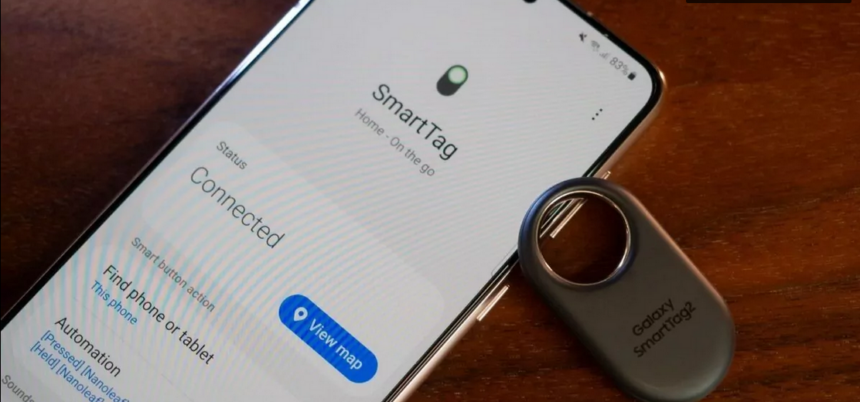In the realm of Bluetooth trackers, two giants have emerged: Samsung’s SmartTag 2 and Apple’s AirTag. While the choice between them may seem predetermined based on your smartphone allegiance, a deeper exploration of their capabilities reveals intriguing differences that tech enthusiasts can appreciate.
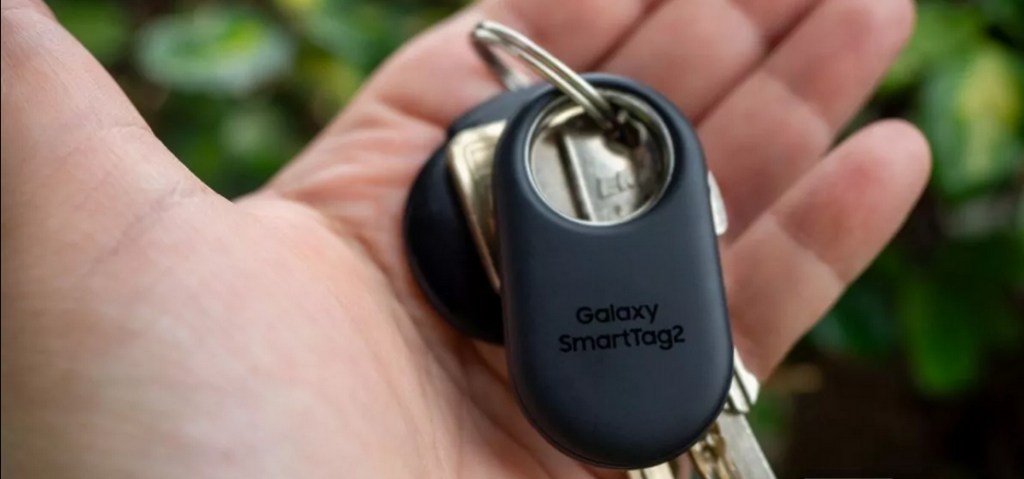
Compatibility and network strength
The SmartTag 2 is tailored for Samsung phones running Android 9.0 and above, with the SmartThings app exclusively installed on Samsung devices. This restriction immediately limits its potential user base, a stark contrast to Apple’s widespread compatibility.
Additionally, the SmartTag 2 relies on Samsung devices for its SmartThings Find tracking network. In contrast, Apple’s AirTag leverages its vast Find My Device network, which extends across a global landscape, offering a broader and more potent tracking infrastructure. However, it’s worth noting that Google is gearing up to introduce its network, which could change the landscape again.
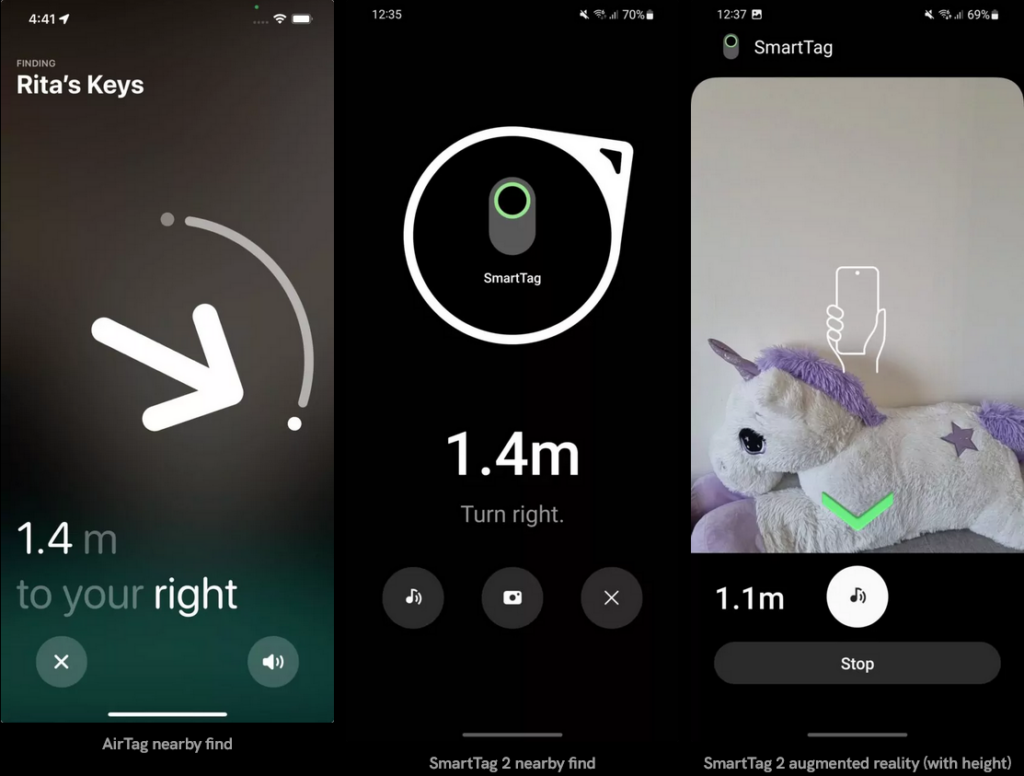
Performance in tracking
When it comes to tracking capabilities, both SmartTag 2 and AirTag shine. They can help you locate your misplaced items with ease. The SmartTag 2 uses Bluetooth and Ultra WideBand (UWB) technology to guide users to their belongings. The AR mode with a camera further enhances precision. In contrast, the AirTag provides similar features but lacks AR capabilities. Both perform admirably in typical indoor scenarios, consistently leading you to your lost keys or wallet.
Range and precision
In terms of range, the SmartTag 2 exhibits a more robust signal, capable of staying connected at distances up to 30 meters in real-world settings, while the AirTag’s range caps at about 10 meters. For those who tend to misplace items within larger spaces, the SmartTag 2 offers a clear advantage.
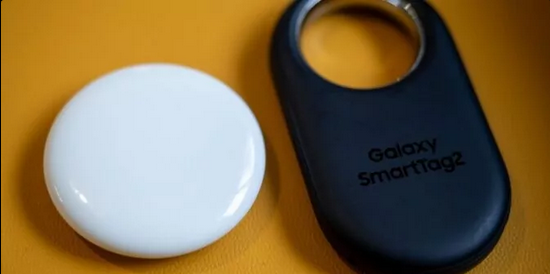
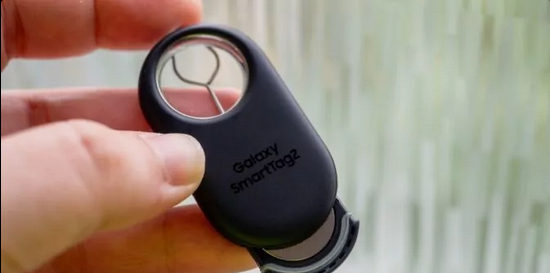
The network test
The network test involves tracking a person equipped with all three trackers, namely the SmartTag 2, AirTag, and Tile Pro, without their own phone playing a role in updating the trackers. The Tile Pro, with no UWB capabilities, could only be rung and relied on auditory cues. It had limited success in locating the person, illustrating the limitations of Tile’s network in different regions.
Samsung and Apple, on the other hand, kept the person’s location updated effectively throughout the day, with Apple’s AirTag slightly edging ahead in terms of update frequency. This highlights the strength and ubiquity of both networks.
| ~ | Samsung Galaxy SmartTag 2 | Apple AirTag |
|---|---|---|
| Battery | CR2032 | CR2032 |
| Battery life | 500 days (700 days with Battery Saver Mode enabled) | More than 365 days |
| IP rating | IP67 | IP67 |
| Connectivity | Bluetooth Low Energy v5.3 + UWB | Bluetooth Low Energy + UWB |
| Bluetooth range | 120m | 10m |
| Dimensions | 28.8 x 52.44 x 8 mm 13.75g | 31.9 x 31.9 x 8 mm 11g |
| Compatibility | Samsung phones running Android 9.0 and above | Apple iPhones running iOS 14.5 and above |
| Keyring hook | Built-in | Only with separately-purchased keyring holder |
| Other | Physical button (Stop ringing, find your phone, control your smart home) | – |
Where Samsung truly excels is in its ability to provide location history for your SmartTag 2. Apple’s AirTag, in contrast, only displays the tag’s current or last known location. This feature sets Samsung apart, allowing users to track their tag’s movements over several days, providing a more comprehensive picture of the tag’s journey.
For the average consumer, the choice between these two trackers is typically dictated by their smartphone preference. If you own an iPhone, the AirTag is the natural choice; for Galaxy phone users, the SmartTag 2 is the go-to option.
However, for tech enthusiasts and those who can appreciate the finer details, a comparison of the two trackers reveals intriguing disparities. Samsung’s SmartTag 2 offers a broader feature set, including customizable ringtones, location history, and a built-in keyring hook. These added functionalities enhance its versatility and usefulness.
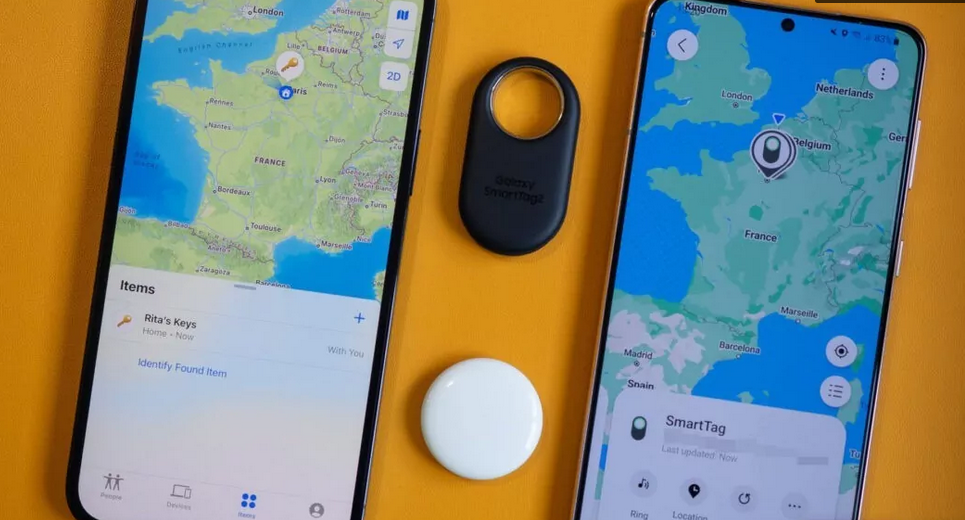
In the world of Bluetooth trackers, the battle between Samsung and Apple showcases how innovation and features can distinguish two closely matched competitors. Whether you lean towards SmartTag 2 or AirTag, both have a role to play in helping users keep track of their belongings in an increasingly connected world.


